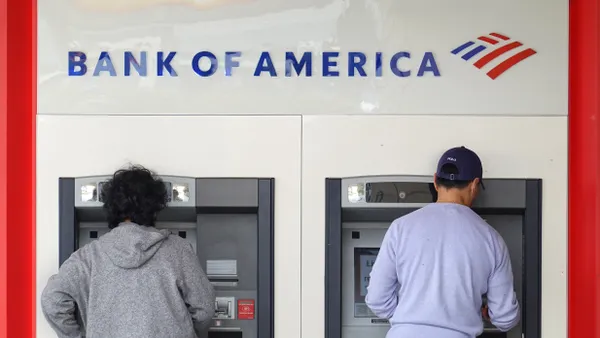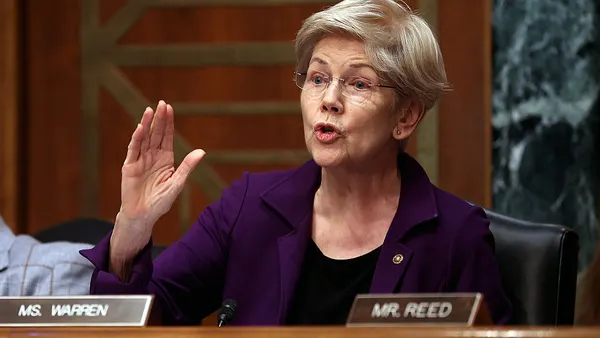Dive Brief:
- Barclays is withdrawing from the United Nations-backed Net-Zero Banking Alliance, a sector coalition whose members have committed to aligning their financial activities with the aim of reaching net-zero emissions by 2050.
- The British bank announced its exit Friday and pointed to the financial sector’s retreat from the climate group in its statement. “With the departure of most of the global banks, the organization no longer has the membership to support our transition,” Barclays said.
- Barclays is the latest financial institution to quit NZBA, following rival bank HSBC, which departed the group last month. The departures, in turn, trail U.S.-based banks’ exodus from NZBA and other climate-focused alliances, spurred in part by new federal leadership and ongoing scrutiny from Republicans.
Dive Insight:
Barclays said it would remain committed to its sustainability goals, including a target to reach net-zero emissions by 2050. The bank reiterated that its commitment to allocating $1 trillion in sustainable and transition financing by 2030 remains “unchanged.”
“We continue to work with our clients on their transition, finance the transition and scale climate tech, while helping to ensure energy security for our customers and clients,” Barclays said.
The departure from NZBA comes just a few days after the bank shared it had generated £500 million ($664 million) in revenue in 2024 from sustainable and low-carbon transition related activities. Barclays announced in June that its climate investment arm had enabled £508 million pounds in investments focused on climate technology and innovation since 2020.
However, a recent report from a coalition of climate organizations found that Barclays was the biggest financier of fossil fuels in Europe last year, boosting its funding for related operations by over 55% to $35.4 billion. The report backed by the Rainforest Alliance Network, Sierra Club and Reclaim Finance also counted Barclays as one of four banks — alongside JPMorgan Chase, Bank of America and Citi — that increased its fossil fuel financing by over $12 billion from 2023 to 2024.
The U.K.-based responsible investment NGO ShareAction called Barclays’ decision to depart NZBA “incredibly disappointing,” in an emailed statement. The organization’s co-director of corporate engagement, Jeanne Martin, said the bank took a “step in the wrong direction at a time when the dangers of climate change are rapidly mounting.”
“The announcement comes just three days after Barclays published a transition update reiterating its commitment to be a net zero bank by 2050, sending mixed signals to governments and companies around the world,” Martin said.
Following the news of Barclays’ exit, an NZBA spokesperson told ESG Dive the group “remains focused on delivering on the future vision overwhelmingly endorsed by member banks a few months ago.”
“As the largest global initiative specifically focused on supporting climate mitigation action by banks, NZBA is uniquely positioned to provide the practical support banks need to grasp the opportunities and manage the risks of the move to net-zero,” the spokesperson said in an emailed statement Saturday.
The organization updated its membership guidelines in April, following exits from large U.S. and Canadian banks around the time of President Donald Trump's inauguration in January, and eliminated a requirement for banks to align their portfolios with a 1.5 degrees Celsius warming scenario. That loosening of standards also led Netherlands-based Triodos Bank to depart at the time.













